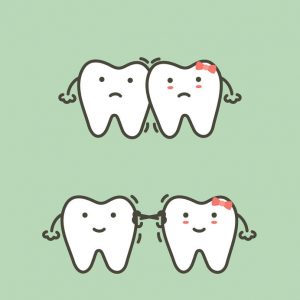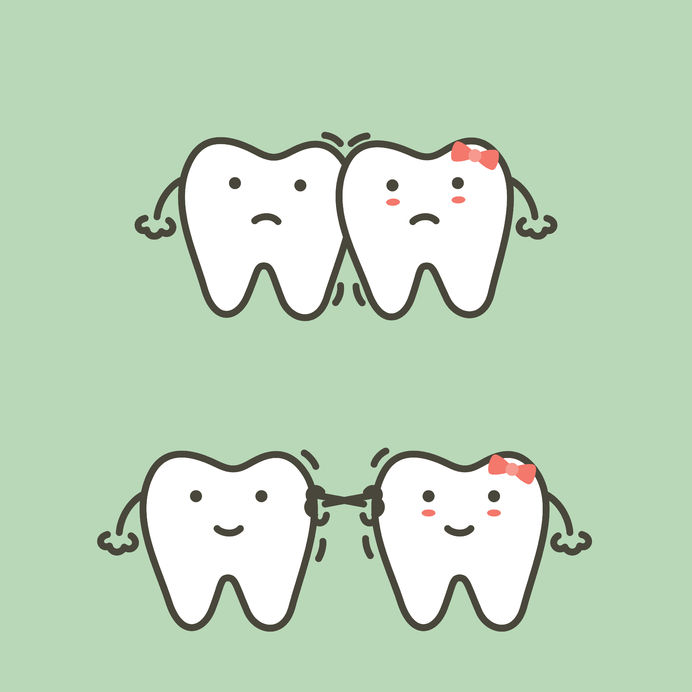What is Malocclusion?
When you smile or bite down, do you notice that your upper teeth aren’t touching your lower teeth properly? When this occurs, it is referred to as malocclusion, which can be apparent of an overbite, open bite, under bite or cross bite. If you notice that your upper teeth aren’t sitting properly on top of your lower teeth, then speak with your doctor so that they can provide you with the best treatment plan to make sure that you have proper alignment of your teeth. Not having a proper alignment can cause teeth to get damaged or break.
Here are some of the ways that malocclusions are caused:
- If there is a mismatch between your jaw size and the size of your teeth.
- If one has a habit of thumb sucking or tongue thrusting.
- Having a premature loss of missing teeth.
Malocclusions are broken up into three different categories.
Class I – this is when the teeth have spaces between them or are crowded. Also, the upper and lower jaw will not connect properly.
Class II – this is when the lower jaw causes your teeth to have an overbite because it’s too far back.
Class III – this is when the lower jaw extends which then causes an underbite in which the lower teeth shut in front of the upper teeth. If you leave this type of malocclusion untreated, tooth damage, as well as difficulties with speaking and chewing, can occur. Also, not correcting this problem can create difficulties with chewing and cause pain in the jaw.
Treating Malocclusion.
For the most part, treating Malocclusion will involve some type of orthodontic treatment. When treatment begins, it will most likely occur in phases and could involve extracting a tooth and at times surgery might be needed if really necessary. During the treatment process, it’s important to take proper care of your teeth by brushing and flossing especially if you end up having to wear some type of orthodontic appliance.
Make sure that you’re going for regular dental checkups so that you can start treatment early if need be and also so you can prevent further issues with your teeth from occurring. Remember that taking care of your teeth at early ages will help fix and prevent problems in the future.


